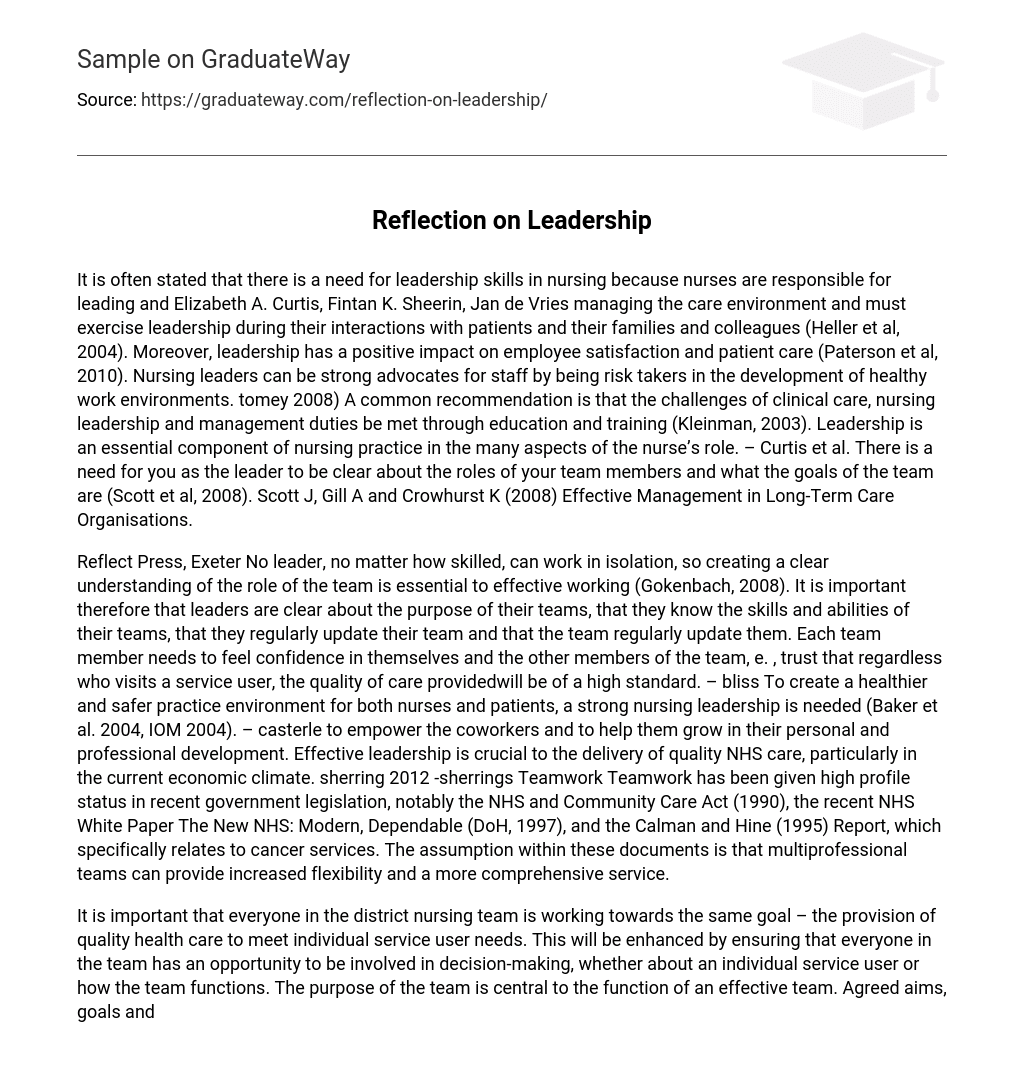Leadership skills are crucial in nursing as nurses are responsible for leading and managing the care environment. They must exercise leadership when interacting with patients, their families, and colleagues (Heller et al, 2004). Additionally, leadership has a positive impact on employee satisfaction and patient care (Paterson et al, 2010). Nursing leaders can advocate for staff by taking risks in developing healthy work environments (Tomey, 2008). It is recommended that education and training be utilized to meet the challenges of clinical care, nursing leadership, and management duties (Kleinman, 2003). Leadership is an essential aspect of nursing practice and encompasses various aspects of the nurse’s role (Curtis et al). As a leader, it is important to be clear about the roles of team members and the team’s goals (Scott et al, 2008).
Reflect Press, Exeter No leader, no matter how skilled, can work in isolation, so creating a clear understanding of the role of the team is essential to effective working (Gokenbach, 2008). It is important therefore that leaders are clear about the purpose of their teams, that they know the skills and abilities of their teams, that they regularly update their team and that the team regularly update them. Each team member needs to feel confidence in themselves and the other members of the team, e. , trust that regardless who visits a service user, the quality of care providedwill be of a high standard. – bliss To create a healthier and safer practice environment for both nurses and patients, a strong nursing leadership is needed (Baker et al. 2004, IOM 2004). – casterle to empower the coworkers and to help them grow in their personal and professional development. Effective leadership is crucial to the delivery of quality NHS care, particularly in the current economic climate. sherring 2012 -sherrings Teamwork Teamwork has been given high profile status in recent government legislation, notably the NHS and Community Care Act (1990), the recent NHS White Paper The New NHS: Modern, Dependable (DoH, 1997), and the Calman and Hine (1995) Report, which specifically relates to cancer services. The assumption within these documents is that multiprofessional teams can provide increased flexibility and a more comprehensive service.
The district nursing team understands the importance of collaboration in achieving their shared objective. Their aim is to deliver top-notch healthcare tailored to each service user’s specific needs. By involving everyone in decision-making, be it regarding an individual service user or the overall team dynamics, they can enhance their effectiveness. Pearson and Spencer (1997) highlight that agreed aims, goals, and objectives are fundamental for ensuring a primary care team operates efficiently.
Working together as a team to achieve a common goal, like delivering quality care, can have a positive effect. Each team member is valued for their unique contribution and has an important role. Although all members impact overall performance, it is the district nurse’s duty to promote collaboration, recognize individual roles, and ensure everyone feels appreciated.





